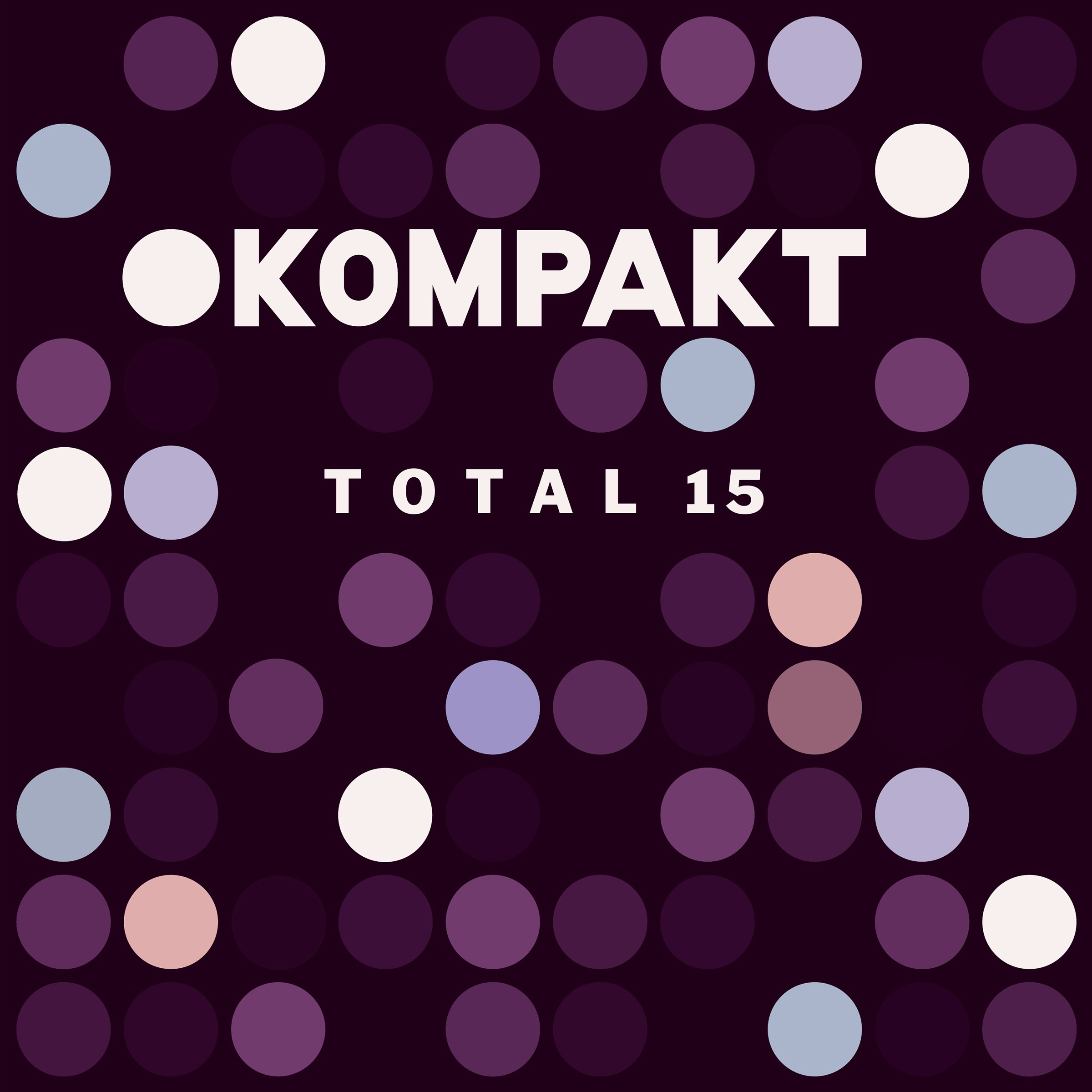Various Artists: Total 15
The 2015 edition of Kompakt's annual bounty of tunes is one of the label's best installments in years.

Another year, another installment of Kompakt‘s Total compilations series, and by now we generally know what to expect—a beyond-solid collection of cuts from the label’s old guard and new jacks, brimming with a bevy of favorites from the label’s recent discography along with a smart selection of unreleased cuts. And while this yearly bounty doesn’t quite yeild the shock-of-the-new, holy-shit-how-good-is-this-label frisson that the first couple of Totals may have given some of us—after all, we all know how exceptional Kompakt is by now, and after hearing about a zillion label comps over the course of a lifetime, it takes a lot to truly wow listeners—it would be a huge mistake for house and techno lovers to take the series for granted. Sure, there may have been a few editions, during a period a few years back when the label seemed a bit unsure if itself, that could have been winnowed down from two CDs to a single disc. But this isn’t one of them—it’s a top-grade, wonderfully wide-ranging volume, with plenty to please those with a yearning for pop-tinged tunefulness, left-field eccentricity, a cascade of emotion, and plain old good music.
The comp grabs you right from the start with the infectious bass throb of Kölsch‘s “DerDieDas,” its earworm of a three-chord melody, staccato vocal sample, hand claps, Mellotron-esque strings and optimistic vibe serving as a setup piece of sorts. But it’s not setting us up for a happy-days experience, exactly—the very next track, Audion‘s “Dam Howl,” trades the sunny-day feel of “DerDieDas” for something considerably darker, with Troels Abrahamsen‘s plaintive, woe-is-me vocals sitting atop its burgeoning squall of minor-key synth work. And so it goes: Disc one is a roller-coaster of emotions riding over a four-four rhythm, as tracks like Patrice Bäumel‘s hard-charging, festival-friendly “The Vanishing”—kick-drum–free for its first four minutes, its drive is defined by a hyperactive, modulated wood block—alternate with weepies such as Terranova‘s “Skin & Bones,” which has vocalists Bon Homme (a.k.a. WhoMadeWho‘s Tomas Høffding) and Lydmor asking “could we be happy?” Judging from the song’s tone, perhaps not—but, oh, those orchestral strings! It’s a beautiful song, which is something that could be said about many of the cuts on this collection. But a few deserve special mention. The spare, bulky trance-tinged synths of Gui Boratto‘s “22” are reminiscent of early Get Physical fare, but the addition of a skippy breakbeat and plucked guitar work lends the tune a more amiable air than, say, Booka Shade’s prime-time material; the lush “Two 0 One,” from John Tejada, manages an immensely appealing aura of uplift while retaining a sense of melancholy; Dave DK’s equally sumptuous “Smukke Lyde” brims with a subltle, pure sort of grandeur.
If the first disc is the party—albeit an emotionally overwrought party at times (i.e, like a lot of the affairs that we’ve all actually been to)—then the second CD serves as the after-party, and a somewhat eccentric one at that. It kicks off innocently enough: Coma‘s supremely chilled “Lora,” with its languid rhythm and sunset melody, could be a long-lost cut from the first Café del Mar compilation; it’s a song that shows that Kompakt really does have its pop chops down. But things get a bit weirder from there. Saschienne‘s “Chambre Bleue” is a creeping, eerie oddity, feeling like a tribal incantation set atop an ceaseless sawtooth synth line; Dauwd‘s “Jupiter George” manages to combine a boogie-flecked bottom end to cosmic filigree, as if Pal Joey had stepped into the studio with Global Communication sometime in the early ’90s; and the aptly named “Sicko,” from Rex the Dog, boasts stuttering, sliced-and-diced vocals that come across as a phonics lesson for androids. The compilation ends with the Black Frame’s undulating, drugged-out, 60-bpm track “Sacrosanct”—a woozy groover that, as much as any song we’ve heard lately, signifies that the shindig has come to a close. It’s a fitting finish to one of the best editions of Total to come along in a while.

